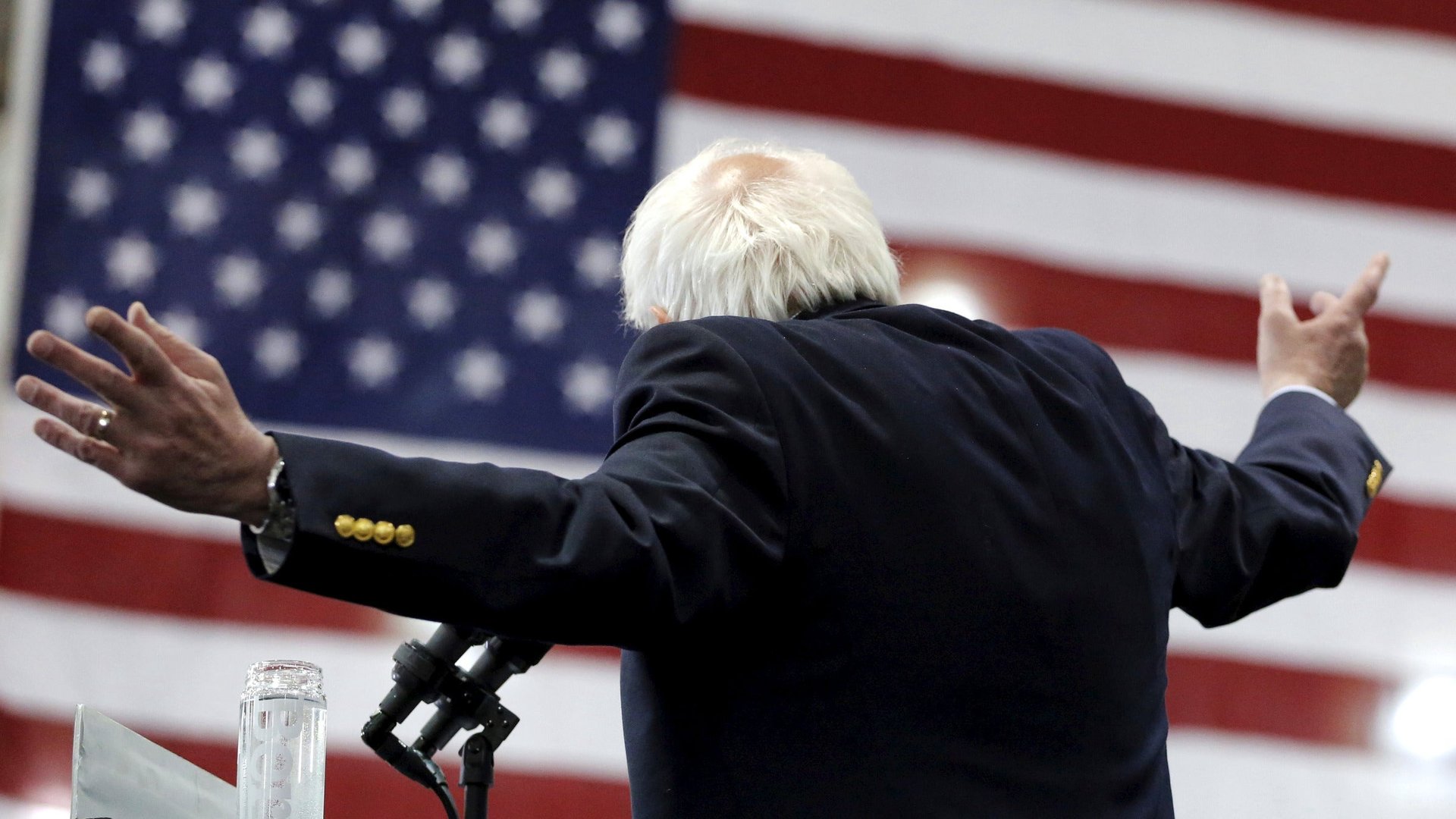Bernie Sanders’ last remaining hope to win the Democratic nomination is anti-democratic
With New York’s primary complete, it’s clear that Bernie Sanders campaign has peaked and is highly unlikely to catch Hillary Clinton.


With New York’s primary complete, it’s clear that Bernie Sanders campaign has peaked and is highly unlikely to catch Hillary Clinton.
He’s not yet mathematically eliminated from the Democratic presidential primary—some huge event could still Change Everything™. But with the Democratic race 65% over, Sanders is more than 230 delegates behind Clinton, and will need to win 59% of the remaining delegates allocated by voters to get just the barest majority over Clinton.
Another way to think about it: If last night’s results had been reversed and Sanders had won 58% of New York’s vote, Clinton would still be the favorite to win the nomination. And that’s not even counting the super-delegates, the party officials who overwhelmingly support Clinton (502-38) but who aren’t bound to any candidate.
Facing these facts, the Sanders campaign now says it plans to win over enough superdelegates to secure the nomination, since it appear likely that neither candidate will win a majority with elected delegates alone.
(Barack Obama did not win a majority of elected delegates in 2008; failed nominees John Kerry and Al Gore did).
It’s hardly likely that super-delegates will shift en masse to Sanders if he can’t win a majority of Democratic voters. But that shouldn’t matter, according to Sanders’ campaign manager, Jeff Weaver, in appearance last night on MSNBC.
“[Super-delegates] are going to want to win in November,” Weaver said. He said that regardless of who the voters supported, his campaign would lobby the party establishment to switch to Sanders, who they view as more electable, instead of unifying around Clinton, despite her current lead of 2.6 million votes and appearing likely to win the popular primary vote in total.
This could simply be posturing by the Sanders camp to gain leverage and extract concessions around policy and appointments from the front-runner, but regardless of the motivation, Democratic insiders fear that the on-going divisive primary will weaken Clinton as a nominee. Tales of intra-party strife at this point in the election season recall the PUMAS in 2008—largely mythical Clinton diehards who boasted of their undying Obama hatred. They did not prove influential in the general election.
But Sanders’ new strategy is instructive for those interested in the evolution of his political revolution. If the proletariat is too short-sighted to understand its own interests, turn to the revolutionary vanguard!